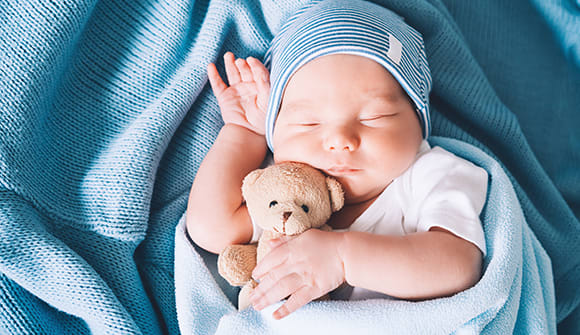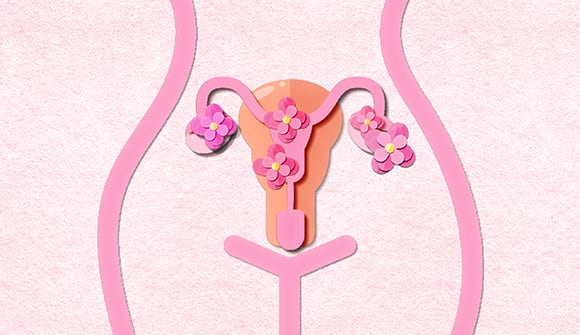Oh, brother
Everything parents of baby boys should know.
Article Author: Katie McPherson
Article Date:

Chaos coordinator. Stunt supervisor. Cuddler-in-chief. Having a little boy means you’ll earn all these titles and more. There are a lot of things to look forward to if you’re pregnant with a baby boy, like all the newborn snuggles and plenty of daredevil antics from toddlerhood on, but there are also a few things new parents should know about their little guy.
Randolph “Randy” Thornton, MD, a pediatrician with Jacksonville Pediatrics and Wolfson Children’s Hospital, debunked some myths about baby boys, and shared some common concerns parents have in their first few weeks together.
Age-old questions
So, is there any truth to the sex-based old wives’ tales about boys versus girls? Like that boys tend to be cuddlier or rowdier, or talk later than girls?
“Not at all. There are so many personality types. We tend to think boys gravitate toward hitting more milestones or talking later, but I haven’t seen any specific differences based on gender. It’s not something I ever factor in,” Dr. Thornton said.
What the heck are hair tourniquets?
If you’re a new parent, you may not have heard of hair tourniquet syndrome, which happens when a hair or thread becomes tightly wrapped around a baby's appendage and causes damage. It can happen on fingers and toes, and on baby boys, it can also occur on the genitals.
“The age group most at risk for finger and toe hair tourniquets is birth to 2 years, and on the genitals, they occur most often in ages 4 months to 6 years,” said Prasanthi Reddy, MD, medical director and president of Rainbow Pediatric Center and medical staff member at Wolfson Children’s Hospital. “In 210 cases in the U.S. in 2020, 44% occurred on the penis, 40% on the toes, 9% on the fingers, and 7% in other areas.”
Dr. Thornton said while it’s good practice to check for hair tourniquets, don’t let the possibility of one stress you out too much.
“Parents always get nervous about them, but they’re rare,” he assured.
Erections happen
If you’re doing a diaper change and notice your baby has an erection, don’t freak out. It’s totally normal at any age.
“They can start really from the day the baby’s born,” said Dr. Thornton. “In my experience, it’s usually right before they’re about to urinate. Don’t worry at all if you notice an erection. It’s not tied to any sexual cause.”
Circumcision decisions
One of the first choices you’ll make about your baby boy’s care can also feel like one of the biggest: whether to circumcise. Dr. Thornton said it has always been a personal decision, and that no choice is right or wrong as long as you’re well informed.
“In our practice, I’d say 90% to 95% of boys are circumcised. There’s also a large contingent of people who say it’s totally unnecessary,” he said. “The arguments for circumcision are that medically, it’s easier to keep clean so there’s a lower risk of urinary tract infections (UTIs). Statistically, babies who are circumcised do have slightly fewer UTIs. If you have an uncircumcised child and you spend a little extra time keeping that area clean, you minimize the risk.”
And what about the downside?
“The cons to circumcision are the risk of infection and bleeding. That risk is very, very low if you take care of the circumcision site,” Dr. Thornton said.
Parents who choose circumcision sometimes worry about how the penis looks afterward.
“There will be a little streaky yellow film that develops on the site. It’s totally normal and the equivalent of a scab forming,” said Dr. Thornton. “If you have any questions during the healing process, certainly ask your pediatrician.”
No matter what you decide, it’s best to make this call before your due date (and include it in your birth plan so your providers know your wishes, too). The more you prepare and learn the ins and outs of baby boys now, the less likely you are to feel overwhelmed later.
You want the best care for yourself and your baby during and after birth. To learn more about Baptist Health's Labor and Delivery services, visit baptistjax.com/baby.



